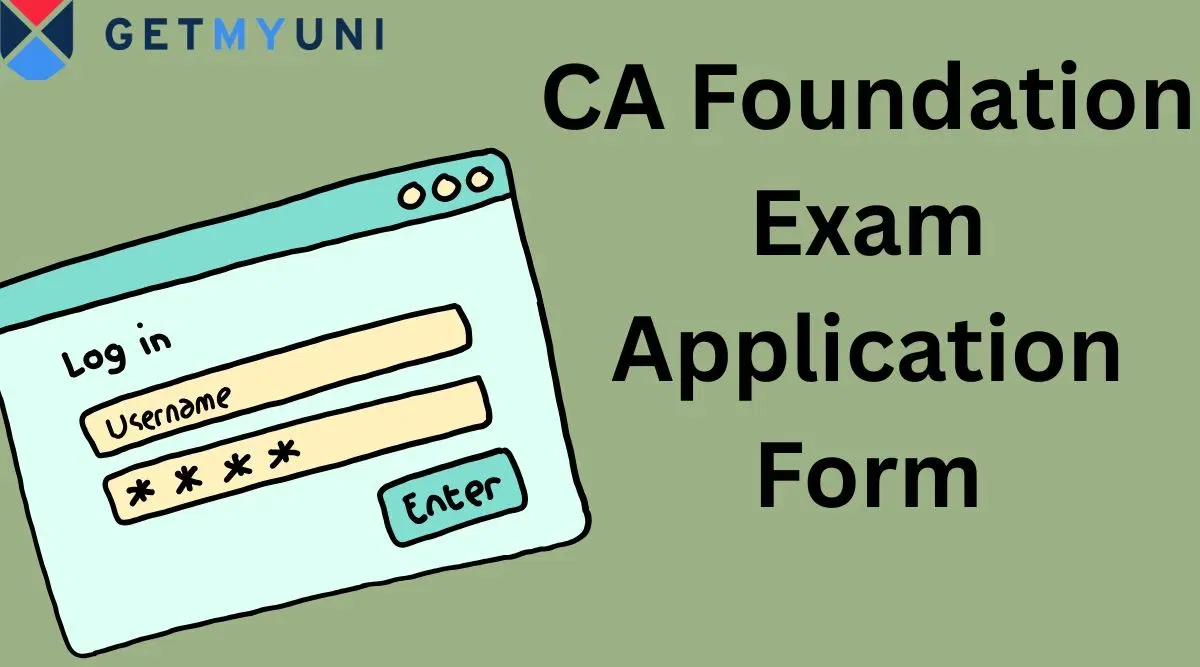Are you confused between choosing CFA Vs CA? Get insights about the course prospects, scope, salary, eligibility and comparative study of CFA vs CA.
Table of Contents
- CFA vs CA - Highlights
- CFA vs CA - Overview
- CFA vs CA - Eligibility criteria
- CFA vs CA - Admission Procedure
- CFA vs CA - Entrance Exams
- CFA vs CA - Syllabus
- CFA vs CA - Benefits of Pursuing
- CFA vs CA - Job Opportunities
- CFA vs CA - Average Salary
- CFA vs CA: Best Training Academies in India
- CFA vs CA - Which One to Choose
About every second commerce student dreams of becoming a chartered accountant. In addition, one out of every five finance-interested students wishes to become a CFA. Considering the data, it is clear that the rivalry will be fierce. There is still a need for expert experts in accounting and finance around the world; these two topics are what CA and CFA courses are all about.
If you are are doubtful about which path to take as a career option: CA or CFA, or both? Both courses are among the finest in their fields, and they are widely regarded and valued. The most significant distinction is that CA is solely based on the Indian accounting system and Indian taxes and corporate rules, while CFA is a multinational path that is acknowledged in over 150 countries and follows US GAAP and IFRS.
CFA vs CA - Highlights
Students are still in a dilemma between the two options. “What is the difference between CA and CFA?”. Let’s have a look at the major differences between the two courses.
| Criteria | CA | CFA |
| Full form | Chartered Accountant | Chartered Financial Analyst |
| Organizing Body | ICAI | CFA Institute |
| Duration | 4-5 Years (If All levels cleared in the first attempt) | 4Years (If all levels cleared in the first attempt) |
| Levels | 4 Levels including training | 3 Levels |
| Pattern | Subjective Based Exam | Objective-Based Exam |
| Course Fees | Course fee ranges between INR 2-3 LPA. | Course fee ranges between INR 1-1.5 LPA |
| Average Salary | INR 6 LPA | INR 4 LPA |
| Job Opportunities | Internal Auditor, Public Accountant, Management Accountant, etc. | Portfolio Manager, Consultant, Investment Analyst, etc. |
CFA vs CA - Overview
While both the courses are professional courses but one i.e., CA focuses on general accounting and management whereas the other i.e., CFA focuses on the investment and finance domain field. Let’s dig deep to know more about the courses.
Chartered Financial Analyst (CFA) is a broad area of research that focuses on equipping students with investment and financial management expertise and knowledge. The CFA program is a training program that prepares students to understand the financial implications of business and financial activities.
A Chartered Accountant (CA) is a globally recognized profession that allows them to practice in all areas of industry and finance, including accounting, auditing, and general management. Government agencies, as well as public and private sector businesses, will hire CAs. In a nutshell, professional accountants are still in demand across all sectors. To become a certified CA, applicants must pass various stages of exams and go through a rigorous training program.
CFA vs CA - Eligibility criteria
Eligibility criteria for both the courses differ in a way that CFA requires experience whereas CA doesn’t require experience at the industry level. Candidates can also choose CFA or CA based on experience level.
Many interested in pursuing CFA must meet the eligibility requirements. The below are the requirements for the CFA program:
- The candidate must have a Bachelor's degree or similar from a recognized institution in either discipline with a minimum 55% aggregate.
- Applicants who are in their final year of a bachelor's degree program at the time of admission are eligible to qualify for the CFA program.
- Applicants must have a minimum of four years of work experience.
Students must be mindful of the various CA course qualifying requirements to be admitted to the course.
- Students must have received a minimum of 50% in their 10+2 from a recognized institute and board.
- Students must take the course's mandatory entrance tests, such as the CPT.
- There is no upper age limit for enrolling in the course.
CFA vs CA - Admission Procedure
To enroll in either of the courses, one needs to understand the admission procedure in the debate: CFA vs CA. Unfortunately, CFA vs CA requirements and the admission process can be complicated and taxing, and therefore students must do proper research on both these courses.
CFA Admission Procedure
Below mentioned is the admission procedure of CFA:
- Register for the CFA exams.
- Provide all the required documents.
- Once the exam is cleared, one becomes eligible for a CFA certificate.
CA Admission Procedure
Listed below is the admission process one needs to follow for enrolling in CA:
- Register in the Institute of Chartered Accountants of India (ICAI).
- Fill out the application form for Common Proficiency Test (CPT).
- Once all the chartered accountancy entrance exams are cleared, one becomes eligible for the CA certificate.
CFA vs CA - Entrance Exams
To obtain a CFA or CA certificate, aspirants must pass the appropriate entrance exam. The primary aim of this entrance exam is to have a screening process for the CFA and CA course certification.
CFA Entrance Exams
Listed below are the entrance exams for CFA:
- CFA Exam Level 1
- CFA Exam Level 2
- CFA Exam Level 3
CA Entrance Exams
Given below are the CA entrance exams one needs to clear to be eligible for the certification:
- CA Foundation
- CA Intermediate
- CA Final Exam
CFA vs CA - Syllabus
CFA and CA both differ in terms of the syllabus as well as levels. CFA has 3 levels whereas CA has 4levels. CFA has a total of ten subjects for Levels 1 and 2 and seven subjects for Level 3. CA has four CPT subjects, eight IPCC subjects, and eight CA final subjects grouped into two classes of four subjects each.
CFA Syllabus
Below mentioned is the syllabus of CFA:
- Quantitative Methods (Level 1,2)
- Financial Reporting and Analysis (Level 1,2)
- Corporate Finance (Level 1,2)
- Ethical and Professional Standards (Level 1,2,3)
- Derivatives (Level 1,2,3)
- Portfolio Management (Level 1,2,3)
- Economics (Level 1,2,3)
- Fixed Income (Level 1,2,3)
- Equity Investments (Level 1,2,3)
- Alternative Investments (Level 1,2,3)
Read More: Level Wise CFA Syllabus and Subjects
CA Syllabus
Below mentioned is the syllabus of CA:
Level 1: CPT
- Business Economics and Commercial Knowledge
- Fundamentals of Accounting
- Business Laws and Business Correspondence and Reporting
- Business Mathematics, Statistics, and Logical Reasoning
Level 2: IPCC
- Cost Accounting and Financial Management
- Accounting
- Taxation
- Advanced Accounting
- Business Laws, Ethics and Communication
- Auditing and Assurance
- Corporate and other Laws
- Information Technology and Strategic Management
Level 3: CA FINAL GROUP 1
- Strategic Financial Management
- Financial Reporting
- Corporate and Economic Laws
- Advanced Auditing and Professional Ethics
Level 4: CA FINAL GROUP 2
- Electives
- Strategic cost management and performance evaluation
- Indirect Tax Laws
- Direct Tax Laws and International Taxation
Read More: Level Wise CA Syllabus and Subjects
CFA vs CA - Benefits of Pursuing
The CFA charter may be a difficult procedure, but the rewards one will enjoy in the end will make it all worthwhile. All of the second thoughts before taking the CFA exam will prove to be self-fulfilling. Here are some of the benefits of pursuing the course:
- Networking opportunities
- More Job opportunities
- Attractive package
- Time and Cost-effective
A Chartered Accountant's job is lucrative, difficult, and exciting. In general, most nations have their own Accounting Association in charge of regulating the amount and quality of accountants. Here are some of the benefits of pursuing the course:
- Problem-Solving skills
- Demanding career
- Lucrative Packages
- Professional Growth
CFA vs CA - Job Opportunities
In the Market, there are many career openings for CA as well as CFA professionals. In the finance and manufacturing industries, candidates with CA experience are in high demand. Candidates with CFA experience are still in high demand in the investment industry. As a result, both the CA and CFA courses are similarly beneficial to students' job prospects.
Job opportunities Available for CFA is as follow:
- Research
- Consulting
- Investment strategy
- Private wealth management
- Investment banking
- Commercial banking
Read More: CFA Jobs
Job opportunities Available for CA is as follow:
- Business Services Accountant
- Auditor Accounts Clerk
- Cost Accountants
- Chief Financial Officer
- Tax Accountant
- Financial Controller
Read More: CA Jobs
CFA vs CA - Average Salary
The average salary in India varies due to a variety of reasons, but students have some influence over the amount of money they will be paid. The area graduates live in, their background, the job title or specialty they have, and other aspects will also affect their fresher pay.
The average salary for CA professionals is:
| Designation | Average Salary (INR) |
| Budget Management | INR 9.5 LPA |
| Strategic Accounts | INR 9 LPA |
| Financial Advisor | INR 8.5 LPA |
| Financial Analysis | INR 8 LPA |
| Management Auditing | INR 8.5 LPA |
Read More: CA Salary
The average salary for CFA professionals are:
| Designation | Average Salary (INR) |
| Research Analyst | INR 7.4 LPA |
| Equity Research Associate | INR 5.2 LPA |
| Financial Analyst | INR 6.4 LPA |
| Finance Manager | INR 10 LPA |
| Credit Analyst | INR 6.3 LPA |
Read More: CFA Salary
CFA vs CA: Best Training Academies in India
You should know which training academy or institutions they should look after for pursuing the course as well as attempting the levels. Choosing the best one can help you to get better scores and high competition.
Best Training academies for CA are:
- Yeshas Academy, Bengaluru
- Academy of Commerce, New Delhi
- Vidhya Sagar Institute Limited, Jaipur
- MT educate, Chennai
- Agrawal Classes, Pune
Best Training academies for CFA are:
- ICFL, Mumbai
- IMS ProSchool, Pune
- com, Agra
- ICOFP, Delhi
- Narayana Business School
CFA vs CA - Which One to Choose
When it comes to booming employment in the banking sector, all of these jobs come with strong qualifications and weight. To succeed, both require unwavering effort, sincerity, and commitment. As a result, all of these jobs are superior in their own right. Doing a full-fledged career in such a fine profession gives one a lot of appreciation and acceptance in society.
Specializations: If one is interested in auditing and accounting, take a CA course whereas if one is interested in investment banking and portfolio management, take a CFA course.
Future Scope: The potential scope of CA is that the applicant will build a customer base by launching their Enterprise. A licensed Chartered Accountant is qualified to work in the public, corporate, and government sectors. They will enter a company to provide capital market services if they so choose. CFA professionals can work in Investment Banking in the future and dig deep into their domain.
One can make a list of all credentials, abilities, expertise, and job experience, and then choose the most realistic and appropriate choice for the candidate.























POST YOUR COMMENT